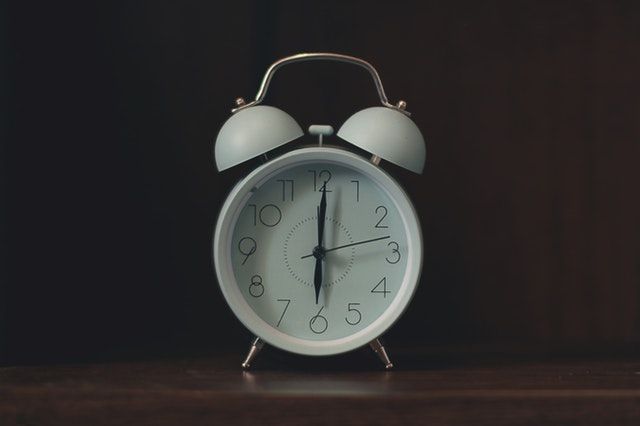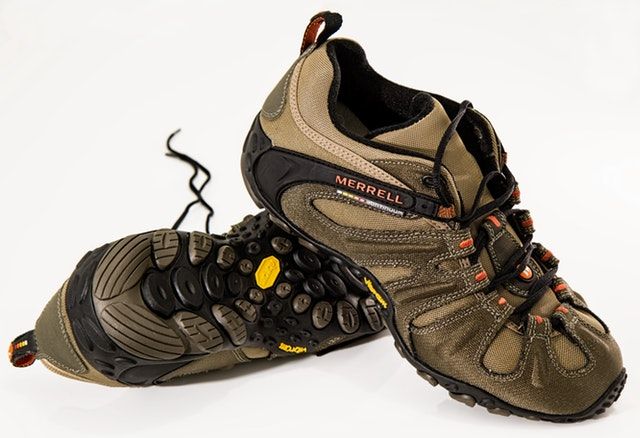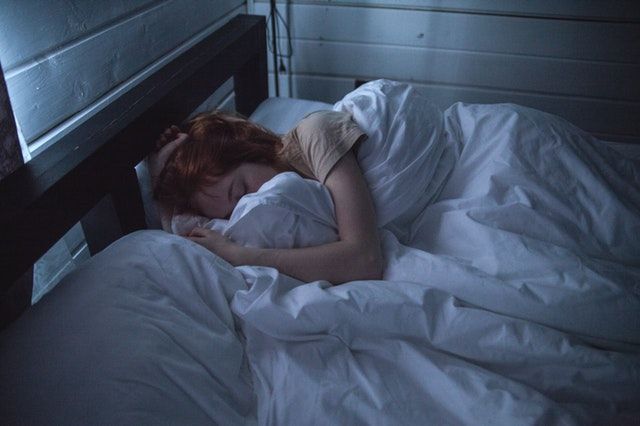Life Without an Alarm Clock
Recently I have focused on getting enough quality sleep each night. An interesting side effect of doing so, is that my alarm clock is no longer needed.

Recently I have focused on getting enough quality sleep each night. An interesting side effect of doing so, is that my alarm clock is no longer needed.
It all started after reading Why We Sleep by Matthew Walker (for more details, take a look at my review). The book has a lot of science in it — the author quips that at the least, the book can be used as a sleep aid — but was a fascinating read. The impact that inadequate sleep has on humans is enormous.
To give a few tasters from the book, sleep deprivation can make it difficult to remember things, can impair the learning new skills, and be a major source of road accidents. There is evidence that lack of sleep causes worse damage than accidents caused by drunk driving. A drunk driver will break late while a sleep deprived driver, falling asleep at the wheel, may not break at all!
One of the pieces of information that most interested me was the impact that a poor night of sleep has on the immune system. The study cited evaluated the effectiveness of the seasonal influenza vaccine on subjects that were carefully controlled. Those that had been deprived of sleep got little or no benefit from the vaccination, as measured by the number of resistant antibodies created in blood samples.
Furthermore, even a few nights on short sleep can actively damage your immune system, making it difficult to fight off colds and other viruses that are so common. The effects from sleep deprivation can take months to undo. This is worrying news for me, as I have often gone on phases of low sleep to get work or study done.
I began to look back at my sleep patterns over the last year or so and noticed a few worrying patterns. I’ve been tracking how much time I spend on various activities; this is mainly so that I can hold myself accountable for the things I plan to do, but it has the side effect that I know the time of the start and end of my days over a long period of time.
The pattern is obvious and worrying when examined over a year. After a few weeks of getting up early without having gone to sleep early enough to warrant it, in other words a phase of low sleep, there is usually a period of time where I get extra sleep. This is usually where I go to bed much earlier than usual to get extra hours of shut-eye.
The periods where I go to bed early correspond to my not feeling well, whether it be a cold or headache or some other ailment that makes me want to get into bed at the same time the children are getting tucked in. The pattern is clear: each phase of inadequate sleep is followed by a period where I am driven to bed because I have caught a virus.

Another statistic that I have tracked is the number of jogs or other workouts that I have had. There are a lot fewer than I would like in 2019. I do not run when I am not feeling well; possibly if it’s just a head-cold I will venture to the gym, but if I feel it has gone below the neck, I stay strictly away from any cardiovascular exercise. The risk of putting the heart under strain, or of spreading a virus around the body is too high.
My sporadic exercise events seem to correspond with the periods immediately following a sleep catch-up or recuperation phase. There are exercise gaps following low-sleep phases. It seems obvious to me that cutting sleep is causing a negative effect on my health and my ability to exercise.
The analysis shows a clear impact on my health, but what about the other points from Why We Sleep? Is my ability to learn new skills, or absorb new facts also being affected? These are less easy to measure, but I have to assume that if my health is being affected by periods of inadequate sleep then so are the other aspects.
My conclusion is that if I want to be healthy with the ability to exercise regularly, to continue reading and learning, and to operate at my highest capacity, then I need to get enough sleep at night.
Sleep Tight
How can you ensure that you get enough sleep? How do you know how much sleep you need? What is stopping you sleep or is keeping you up at night? These are tough questions and everyone is going to have slightly different answers although there will be a commonalities across most people. If you are interested, then I would recommend reading Why We Sleep. The following are a few things that I tried from the book.
Caffeine Rationing and Timing
Probably the obvious one, but cutting down on the number of cups of coffee or tea I drink per day was something that I tried. I had never heard of the ”half-life” of coffee before reading Why We Sleep but it does explain how a cup in the late afternoon can cause sleep disruption at night. Some people can have a coffee late at night without too much impact on their sleep, but I am not one of those. I don’t want to give up coffee altogether, but I have begun to restrict caffeine after midday.
Knowing the science behind how caffeine works helps me to make better decisions. When feeling tired, the easy answer might be to load up on caffeine to get through it. However, there is a consequence to this: a crash. The disruption you your daily sleep cycle might mean that the extra coffee in the afternoon or evening becomes a necessity and then a habit. This is a cycle that will keep putting pressure on the amount you sleep. Make a better choice to get through those long afternoon meetings, like splashing cold water on your face.
Enough Time
If you want to have seven hours of sleep, you should plan to be in bed with the lights off for at least eight hours. This gives enough time to settle down properly. We sleep in cycles with periods of light, deep and REM (rapid eye movement) sleep, but also periods of wakefulness. Give yourself a buffer so that you get the full amount that you are looking for.
Getting to bed on time takes planning — get everything that you need to do before bed out of the way long before lights off time. I use a reading-time buffer, which I can shorten if I’m running late to ensure that the lights are out to allow me eight hours of time in bed to hit my seven hours sleep per night target.
Another good sleep habit is to try to get to sleep at the same time every night. Your body likes regularity. The circadian rhythm demands that we sleep when the sun goes down and rise with it. I’ve tried to pick a schedule that I can stick with for both working days and the weekend, but this is a work in progress.
No Alarm Clock
Apart from when I have to get up extra-early, for example to catch an early flight, I have not used an alarm to wake up for months. This allows me to sleep longer if my body needs it. What if I sleep in? I have two young children that act as back-ups to ensure that I never get too much of a lie in, but I have found that I awake with plenty of time to spare, especially if I got to bed at the planned time.
The book cites evidence about how using alarm clocks can be bad for your heart. There is an increase in heart attacks following daylight saving time changes when the number of hours in bed reduces. The shock of an earlier than expected alarm may be a trigger for this. There is a corresponding drop in heart attacks following the second daylight saving time change, this time everybody gets an extra hour and the alarm clock is not so jarring. Give your heart a break and turn the alarm off.
Shower Before Bed
I changed my habit from morning showers to one immediately before bed. The science behind it is interesting. A shower or bath has a net effect of lowering you core body temperature. This is counter-intuitive to me, but experimentation has proved it. A lowering of body temperature is a key part of getting to sleep.
Exercise
I find it more difficult to drift off to sleep after days on which I have had less exercise. I try to fit in some active walking everyday now. But exercise just before bed is less useful.
Meditation
Since reading Meditation for Fidgety Skeptics last year (review to come) I have built up a daily practice. One of the best practical uses of meditation is to help to ease you into sleep. There are a number of techniques to try: body scans, simple breathing, making minor hand movements, visualising a river journey. Except when I am especially anxious about something, these techniques have proved extremely useful when trying to get to sleep.
Abstain Fom Alcohol
Why We Sleep tells a worrying story about the effect of alcohol on our sleep. It is disruptive to all parts of the sleep process. I have tried modifying my drinking to avoid alcohol immediately before bed. In the same way that I try to avoid eating a big meal before bed, I have tried to place a buffer between my last alcoholic drink and bed time.
Naps and Siestas
I have not been able to effectively work a siesta plan into my life, although it would be tempting to try. Breaking sleep into two phases is common in many Mediterranean cultures and has some obvious benefits. However, it is would be difficult to accomplish in my own part of the world.
Napping is another option. It is less effective than a two-hour siesta, but can help relieve sleep pressure. I find it hard to nap during the day, but I have effectively used naps while commuting on the bus. If I am planning to go out later on a nap while coming home from work can fill me with enough energy for a fun night out.
Dimming the Lights
The rise of LED lights, whether from phones and pad devices or the newer, low energy bulbs has had a detrimental impact on the quality of our collective sleep patterns. The wavelength of the blue light used to create white light in these LED devices can trick our brains into thinking it is daytime and delaying the ability to fall asleep.
My plan is to phase out all existing LED light fixtures in my home to use dimmable versions or ones that the colour spectrum can be controlled. I have been avoiding the use of devices before bedtime for some time. I think the combination of these strategies will allow better quality sleep. More to come on this as I experiment.

Precious Sleep
Humans need a lot of sleep. Somewhere between seven and nine hours. It depends on you age — children need a lot more than adults — and other factors such as genetics and culture, not to mention the needs of your life.
Quality is important also. Poor quality sleep can have the same detrimental effects as sleep deprivation, if continued for an extended period. We need to protect our both the act of sleep and the environment in which we take it.
I have noticed a definite, immediate, positive impact on both my general health and my ability to concentrate since making an active effort to protect my sleep. And I don’t live in fear of oversleeping and being late; I can rely on my body’s internal clock to get me up on time.
Protecting my sleep does mean that I can squeeze a little less activity into the twenty-four hours available in the day. But I think that the higher quality of life that is possible outweighs any loss. I hope to continue without the need for that annoying alarm clock for many years to come.
